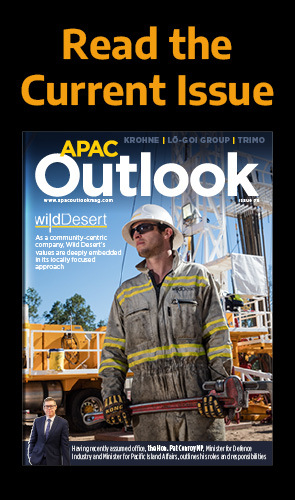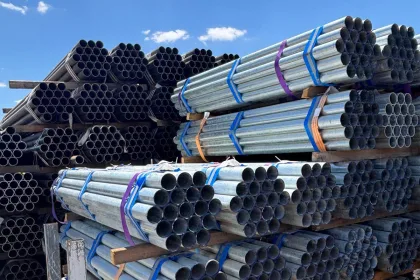Celebrating its 45th year of operation, Hock Lian Seng are proud to continue providing significant contributions to the thriving Singapore economy.
45 YEARS OF CONSTRUCTION SUCCESS
Hock Lian Seng (HLS) Group was established in Singapore in 1969 by Mr Chua Leong Hai, who gladly continues to retain his position as CEO today. The company’s core focus has always been on the construction of infrastructure projects including roads, highways, bridges, land reclamation, wharves, airport taxiways, aircraft parking aprons and Mass Rapid Transit (MRT) stations, tunnels, viaducts and depots. In December 2009, the company converted into a Public Limited Company, taking the name Hock Lian Seng Holdings Limited, and were successfully listed on the SGX Mainboard in the weeks that followed.
Celebrating its 45th year of operation, Hock Lian Seng are proud to continue providing significant contributions to the thriving Singapore economy. “We have contributed to the construction of every MRT line throughout Singapore since the early 1980s. We were involved in the North South Line, the East West Line, the North East Line, the Circle Line, the Downtown Line, and now the Thomson Line. We will be looking forward to contributing as one of the builders for the upcoming Eastern Region Line, the Jurong Region Line, the Cross Island Line and also the North-South Expressway,” explains Deputy CEO David Chew Tuan Dong, who is excited by what the future holds for HLS.
HLS have a disciplined focus and extensive experience in their core business, and this deep understanding of Singapore infrastructure works is something Chew sees as a unique selling point that the company can bring to the table of any project: “We are very well established, well received and familiar with the local authorities’ requirements. We have extensive knowledge of the geo-technical conditions of the various parts of Singapore and have solid partnerships with our strong network of supportive suppliers and subcontractors.”
SECURING NEW PROJECTS
The company have secured two new projects this year as their order book continues to grow: The $105 million Changi Airport South End Reservoir taxiway and aircraft parking apron project, and the $221.8 million Maxwell MRT Station on the Thomson Line. Among the other ongoing projects are works on the Marina Coastal Expressway and the construction of Gali Batutrain depot for the Downtown MRT Line, which has a target completion date at the mid- 2015. “The new order book for 2014 is indeed something to be pleased about, it currently stands in at in excess of S$300 million,” highlights Chew. Supporting the impressive order book are a series of awards and merits won by the company in recent years. These include Merit for Best Managed Rail/Road Infrastructure in the Project Partner category, awarded by the Singapore Land Transport Authority in April 2014 for the Marina Bay Circle Line MRT Station and Tunnel project; and a 2012 Finalist for the Best Managed Rail/Road Infrastructure project for the Kim Chuan Depot.
ONGOING PROJECTS
A number of projects taken on by HLS are complex and executed in “live traffic conditions” where the public’s daily commute continue humming along whilst construction works are progressing adjacent to or even “beneath it”, all co-existing and progressing without impacting each other, and Chew is pleased with the strength and dedication of his team on these projects: “Retaining the operation of a public space whilst continuing to work is a great skill, building on our reputation as a builder who can strike a balance between operational efficiency and construction excellence.” With a substantial volume of their works in infrastructure and construction projects, HLS continue to be a well established local infrastructure builder in Singapore and this has remained the company’s core business strategy throughout past years. “Singapore has a significant number of infrastructure works planned for the expansion of the train network and airport facilities,” cites Chew. In addition, since 2012, HLS have formally established a property development arm, developing two industrial projects (Ark@gambas and Ark@kb) and The Skywoods condominium consisting of 420 units. Mr Kee Guan Chua, the Executive Director overseeing the property development arm noted: “We have started venturing into different building types, in turn strengthening our team in these new areas.”
When it comes to future possibilities, HLS are active in the tendering space for both infrastructure and property development projects in order to optimise their resources over the next five years. Further, Chew is expecting to see substantial growth as a result: “Currently, we are also looking at some overseas infrastructure works with a local partner. We would like to grow out of Singapore and have been looking into various opportunities cautiously to seek the best returns for our shareholders.”
As with any construction company, supply chain plays a vital part in the daily operations of various sites and projects. Chew says that it is critical they maintain their long term relationship with their key suppliers and partners: “Nothing is more important than an on-time supply of material/products. We have a mixture of suppliers who are local and some who have presence all over Asia. Some of the local suppliers have plants or warehouses in Malaysia, as Singapore is a very small country and land cost is high.” HLS also profess to being able to directly supply raw materials themselves if the need arises. “When the need presents itself, we have the capabilities to revive our supply business, especially if the intent is to service our projects for better delivery assurance. For example, at one point we went into importing sand and aggregate for our own project, but we also used this opportunity to supply to others as a separate business line,” emphasises Chew.
FINDING CONSTRUCTION PROFESSIONALS
Due to the sheer volume of infrastructure projects in the pipeline for Singapore, demand continues to rise for construction professionals such as engineers and quantity surveyors, which has been a challenge for HLS. “sourcing talent has been an issue that we are always striving to overcome. Besides this, the construction industry in Singapore has been experiencing a shortage of workers as the preferred subjects of study at university level do not favour construction-related qualifications,” Chew continues: “People prefer sectors where they don’t have the weather to contend with amongst other things such as long hours, night work and temporary container offices which are not as comfortable and convenient as regular office buildings.”
In order to combat this, HLS have been working hand in hand with universities and construction authorities to ensure there are sufficient scholarships and sponsorships and are generally active within the young community. “We have partnered with the BCA in order to reach undergrads in the engineering sector and work with a range of technical institutes where construction-related apprenticeships are concerned,” Chew comments. Additionally, in their effort to improve the perception of the construction and infrastructure industries, HLS are reinforcing the ideals that this is a rewarding and productive area to work in: “we are doing our part to work jointly with the relevant local authorities and educational institutes to offer internships for their students trained in the built environment industry. as for the universities engagement programme, we continue to support engineering interns to work with us for their vacation training and are also sponsoring university undergraduates in their studies at the universities. We currently have 2 graduate scholars working on our projects.” Chew believes that the company’s small efforts to support the building authorities in order to improve the “image” of this industry will be greatly beneficial for the sector’s future.
COLLABORATION WITH FOREIGN CONTRACTORS
With the number of mega infrastructure projects planned, some of which are increasingly complex in nature, and many major foreign contractors have been attracted to Singapore. Hock Lian Seng have gone into joint ventures with some and have frequently been approached by others to bid for projects together, which Chew sees as a largely positive situation for the company: “These foreign players have made the tendering process more competitive but because of the limited local human resources, these joint ventures can also be seen as good opportunities – if the right partnership can be struck – to collaborate and complement each other in terms of technical expertise, human resources or local knowledge.”
HLS are intent on transferring each new lesson learned from working on each project, alongside continually improving the quality of their products, which Chew hopes will further build HLS’ reputation as a builder who “offers advance technical expertise, executes projects timely with excellent results and a developer who value-adds, delivers functional, aesthetically pleasing forms and spaces that improve the lives of the occupants and community.”
With very dedicated and loyal people who have been contributing to the growth of the company throughout the years, HLS expect their hard work and perseverance to elevate the company to greater heights “…combined with being at the right place and at the right time, of course,” Chew concludes.
































